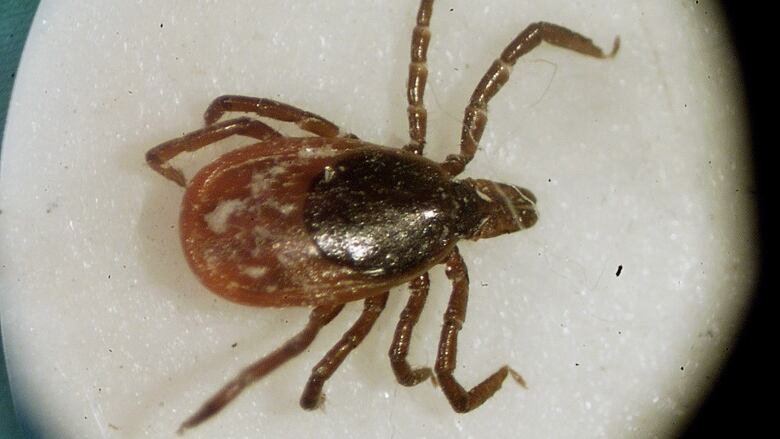Sudbury horses, dog, test positive for Lyme disease
Ontario Public Health notified, officials looking for source


The black-legged tick that carries the bacteria is usually not found in the city.
Dr. P.J. Rocheleau with the Espanola Animal Hospital said the family's dog on the farm was also recently diagnosed.
He said it's usually treated with antibiotics, but added it can cause permanent damage to an animal's joints.
"These diseases are becoming more prevalent with time, largely due to a warming climate," he said.
"But in the case of Lyme disease, it's been spreading across North America over the last several decades."
He said another issue is an increasing deer population, as the disease is carried by deer ticks.
Some parts of the province have been dealing with a rise in the number of ticks carrying Lyme disease, but cases in the north have been rare.
The Ontario Veterinary College in Guelph isassisting with the treatment of the animals, Rocheleau said.
Public health officials investigating
The Sudbury and District Health Unit has notified Ontario Public Health that some animals have tested positive for the bacteria that causes Lyme disease.
Holly Browne with the health unit said sometimes ticks with the disease can arrive on migratory birds.
"We are looking for that, that it stays here for a period of time as opposed to finding an individual tick or a couple of ticks in varied areas that could indicate they've come in on birds," she said.
Browne added the range of the black-legged tick has been expanding, but there's no evidence of an established population in Sudbury.
"It's always a concern for the possibility of a tick in the area," she said.
"Animals can be the sentinel to let us know that something is happening."
Browne said the last human case of Lyme disease in Sudbury was reported in 2008, but it's believed the infection took place while the person was travelling.












_(720p).jpg)


 OFFICIAL HD MUSIC VIDEO.jpg)
.jpg)



























































































